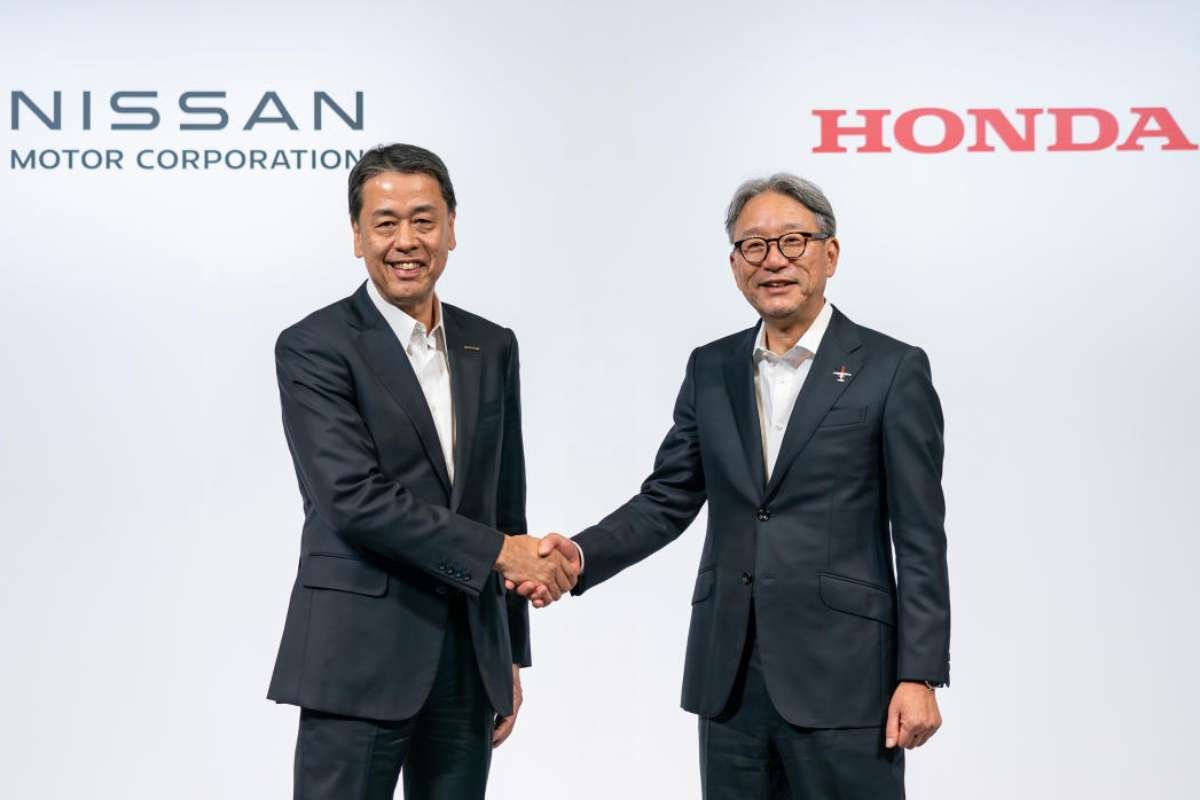Honda Motor Co. and Nissan Motor Co. are in discussions regarding a potential merger to challenge Toyota Motor Corp.’s dominance in the global auto market. This move could consolidate Japan’s auto industry into two main camps: one led by Honda and Nissan, Mitsubishi Motors Corp., and the other dominated by Toyota and its partner companies. According to insiders, the talks are in the early stages, and options on the table include a merger, capital partnership, or the creation of a joint holding company.
The discussions follow Honda and Nissan’s decision earlier this year to collaborate on electric vehicle (EV) batteries and software. A potential merger could strengthen both companies’ positions in the competitive EV market, enabling them to better compete against global rivals such as Tesla and Chinese automakers. Honda’s Executive Vice President Shinji Aoyama confirmed these considerations but emphasized that no final decision has been made.
Market reactions were swift, with Nissan shares soaring by as much as 24% in early trading on Wednesday, while Honda’s stock saw a decline of 3.4%. American depositary receipts of both companies also rose, reflecting market interest in the merger talks.
Strategic Realignment in a Competitive Landscape
Should the merger materialize, the combined entity could sell over 8 million vehicles annually, moving closer to Toyota’s 10.5 million vehicle sales in 2022. Toyota has consolidated its influence by partnering with Subaru, Suzuki, and Mazda, leveraging its extensive resources and strong credit rating to maintain its lead in the industry.
The potential Honda-Nissan-Mitsubishi alliance would address overlapping areas, streamline resources, and strengthen its collective foothold in emerging markets. Analysts believe the merger could provide a much-needed lifeline for Nissan, which faces financial struggles, a daunting debt load, and pressure from activist shareholders. Bloomberg Intelligence analyst Tatsuo Yoshida described the potential merger as “short-term relief” for Nissan’s financial challenges.
Meanwhile, Honda’s valuation of ¥6.8 trillion ($44.4 billion) significantly surpasses Nissan’s ¥1.3 trillion market cap, highlighting the companies’ disparity. However, even a combined valuation of ¥8.1 trillion would be dwarfed by Toyota’s ¥42.2 trillion, emphasizing the scale of the competition.
Implications for the Global Auto Industry
A merger between Honda and Nissan would symbolize a strategic pivot in Japan’s auto industry, moving away from traditional partnerships with foreign manufacturers. Nissan has loosened ties with Renault, while Honda has scaled back collaborations with General Motors, signaling a focus on domestic consolidation.
However, challenges remain. Experts point to potential redundancies and operational overlaps between the two companies. Julie Boote, a senior analyst at Pelham Smithers Associates, warned of “significant hurdles” in integrating the two automakers, despite the potential benefits for Nissan.
Toyota, too, may respond to the merger talks by tightening its alliances and increasing stakes in partner companies like Subaru and Suzuki. This dynamic could lead to intensified competition in the EV market, where all major players are racing to establish dominance.
As the auto industry faces mounting pressure to innovate in EVs and sustainable technologies, the Honda and Nissan merger discussions reflect a broader trend of consolidation and strategic alliances. While the outcome of these talks remains uncertain, their implications could reshape Japan’s auto industry and influence global market dynamics.






